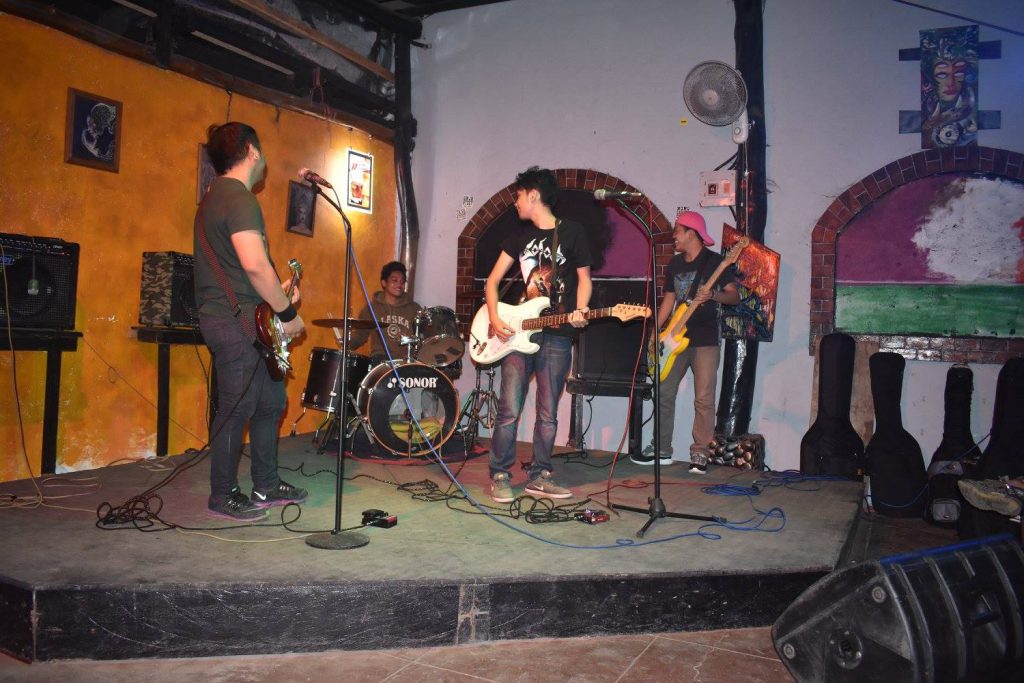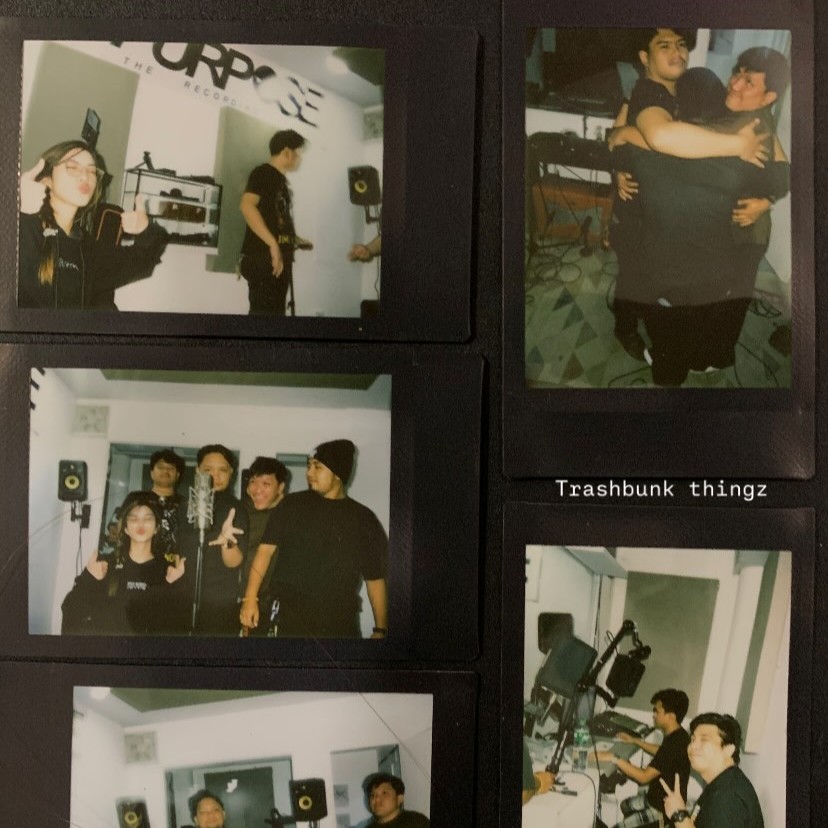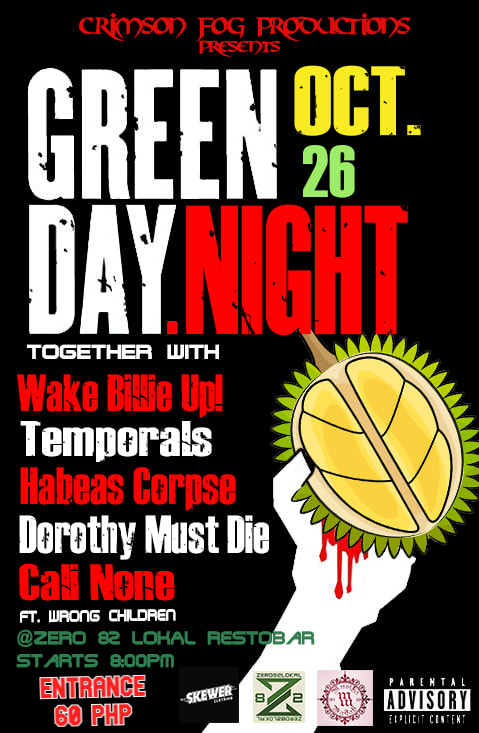A Small Band’s Survival Guide
As an Amazon Associate, I earn from qualifying purchases. That means I earn commissions from my sponsored links or I make money when readers (you) purchase items through my links. Your purchase allows me to continue working as a stay-at-home dad who moonlights as a farmer and a musician. Needless to say, this post contains affiliate links.
Notes from a 9‑Year Musician in Davao
This article is a band survival guide for Davao musicians, written from nearly a decade of experience. Expanded from an earlier draft I wrote after yet another messy breakup post flooded our feeds, the goal isn’t to roast anyone—it’s to help all of us survive, grow, and make Davao’s scene sturdier.

Wrong Children (My first band way back 2016)
Why this, why now
A few weeks ago, a new cover band posted an impulsive, public breakup—naming names, throwing shots, and turning private issues into crowd entertainment. That might get a day of clicks, but it costs years of trust. Scenes don’t collapse from one scandal; they fade from a hundred tiny dramas that make bookers, bar owners, and audiences quietly stop caring.
I’ve been grinding in this city for nine years. I’ve played to three people and to packed rooms. I’ve hauled amps in the rain, borrowed strings I couldn’t afford, and made mistakes I regret. This Band Survival Guide Davao is the handbook I wish every new band would read—especially before posting a breakup.
1) Accept the math (and keep showing up)
Crowds will be small. Gigs will be late. Sometimes you won’t get paid or you’ll get less than promised. That’s not a conspiracy—it’s the statistical reality of young bands in a developing market.
If you measure your worth by early money or fast fame, you’ll burn out. Instead, measure by reps: tighter sets, better songs, stronger relationships. That’s the compound interest that pays later.
2) Don’t import problems that aren’t ours
We’re not in L.A., Tokyo, or Manchester. We’re in Davao, where most venues operate on razor-thin margins, house PAs are uninsured, and that battered bass cab might be the bar owner’s life savings.
“Crowdkilling,” gear smashing, and fake-tough posturing aren’t rebellious—they’re expensive and unsafe. Support your scene; don’t bankrupt it. Protect each other in the pit. Leave the room better than you found it.
3) Music costs money—own that reality
Strings, sticks, gas, rehearsal rooms, studio time, art, mastering, merch—it all adds up. You don’t have to chase money first, but you do have to treat your band like a responsibility.
- Make simple budgets.
- Price your merch realistically.
- Track splits and expenses.
- Decide which gigs are investments (unpaid but strategic) and which must cover costs.
Bands that survive aren’t always the most talented—they’re often the most organized.
4) Stop blaming the “industry”
When you’re starting out, there is no sinister “industry” blocking you. There’s just your band’s consistency, songs, and attitude.
- Want more gigs? Get tighter.
- Want better slots? Show up early and be easy to work with.
- Want fans? Write songs people want to come back for.
Paranoia about invisible haters is a convenient excuse that prevents growth.
5) Don’t market yourselves like you’re famous
Confidence is good; delusion kills momentum. Here’s what “not famous” bands should avoid:
- Diva call-times (“We arrive at 10:30 even if soundcheck is 8”).
- Long riders for a 45-minute set.
- “My team will email your team” when your “team” is just a group chat.
- Overbranding a cover set as a “tour.”
Do solid posters, crisp EPKs, and clean stage plots instead. Let your show—not your captions—do the bragging.
6) Keep your band’s problems inside the band
Public callouts are rarely necessary. Unless there’s a genuine safety issue, harassment, or abuse that the public needs to know about, handle conflicts privately.
- Start with a direct, private conversation.
- Try mediation (neutral friend, promoter, elder musician).
- Make a clear decision (repair roles or part ways).
- Post publicly only if needed—short, factual, gracious.
Keyboard wars make you briefly famous for the wrong reasons and permanently unbookable for the right ones.
7) Social media hygiene (the 48‑hour rule)
- No subposting names or lyrics-as-bullets.
- If you’re hurt, draft it, save it, and wait 48 hours.
- Celebrate others more than you promote yourself (1 post about your gig, 2 lifting up other bands, crew, or venues).
- Never publish chat screenshots. That screams “unsafe to work with.”
- When in doubt, post music. Demos > drama.
8) Write a one‑page band charter (do it tonight)
Put this in a shared file:
- Vision: covers only / originals only / hybrid?
- Commitment: minimum rehearsals per month; lateness policy.
- Money: splits, who fronts costs, reimbursement rules.
- Assets: who owns the PA, banner, in-ears; what happens if someone quits.
- Decisions: votes needed to add/drop members, accept gigs, or release music.
- Exit plan: respectful offboarding (notice, handover, last gig).
Document it while you still like each other.
9) Rehearsal is design, not just repetition
- Record with your phone. Fix transitions, count-ins, and endings.
- Build set arcs (energy waves), not random lists.
- Learn quiet as an arrangement choice—space is a feature, not a bug.
- Practice talk breaks; dead air kills faster than bad notes.
10) Showday professionalism
- Arrive early. Load quickly. Label your cables.
- Talk to the engineer. Share your input list and stage plot.
- Respect volume: loud isn’t tight; tight feels loud.
- Mind the clock. Running over steals from the next act.
- Thank the staff into the mic. Name the bar, the tech, and the other bands. Gratitude is free marketing.
11) Safety isn’t optional
- No “crowdkilling.”
- No glass in the pit.
- No tossing mic stands toward people.
- Assign one member to watch the front line—if someone falls, stop and help.
A safe room is a repeatable room.
12) Build the scene you want to be booked into
- Buy or trade each other’s merch.
- Share backlines when it makes sense.
- Offer your drummer as the “house kit” when appropriate.
- Volunteer at events you’re not playing.
- Recommend bands that fit a gig even if it’s not you.
Abundance thinking wins long term.
13) The zero‑drama advantage
Great songs matter. But in real life, bookers often choose between two good bands—one steady, one chaotic.
- The steady band gets the festival.
- The steady band gets the residency.
- The steady band gets the sponsor.
The zero-drama reputation is an asset you can compound for years.
What not to do (ever)
- Don’t market yourselves like celebrities.
- Don’t make your circle’s problem the city’s problem.
- Don’t destroy what the community can’t easily replace.
- Don’t assume haters—assume gaps in your craft.
- Don’t drink-post. Draft, sleep, edit, then decide.
A graceful breakup post you can copy‑paste
Statement from [Band Name]
After [time period] of playing together, we’ve decided to end this chapter. We’re grateful to the venues, engineers, fellow bands, and everyone who showed up. There’s no drama to share—people grow, schedules change, and that’s okay. Please keep supporting local live music and our individual projects. See you around the scene.
—[Names]
Short. Factual. Gracious. You protect everyone’s future bookings—including your own.
A one‑page Band Charter (template)
Purpose: [Covers/Originals/Hybrid]
Commitment: Rehearsal every [X]; no-show = [consequence]
Money: Splits [X/X/X]; costs approved if > ₱[amount]; reimburse by [date]
Gear: These items belong to [name]. If someone leaves, they take [items]; band keeps [items]
Decisions: We vote; majority wins
Conduct: No public callouts. Use the 48-hour rule
Exit: 2-week notice; last gig = handover; public statement = template above
Final word (from Davao, with love)

TRASHBUNK – (Having fun during our first recording at Purpose The Recording Studio)
We live in a resource-constrained city full of resourceful people. That combination can produce magic if we treat each other, our venues, and our gear with respect. Don’t copy the worst habits of richer scenes—create the best habits of ours: kindness, craft, consistency.
If you want the scene to grow, contribute. If you want people to respect your band, respect theirs. That’s how you last longer than a trending post—and longer than a breakup.
And most importantly: have a good time with your bandmates.




